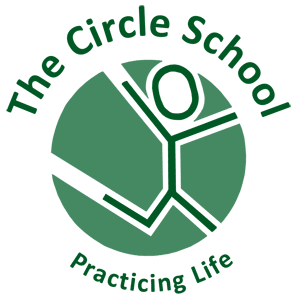Integral education derives its name from integral theory described by writer and thinker Ken Wilber, and from the improved integration it offers between school and society, within the institution of school, and for children’s lives and families.
Integration Between School & Society

The Judicial Committee meets every day. Everyone serves in rotation.
Historically, schools have denied children the ideals on which American society is founded. Most children do not experience the fundamental ideals of law-abiding citizenship, due process, individual enterprise, and equal voice in governance until after their formal schooling has ended.
Integral schools are shaped as a microcosm of the larger world, offering continuity to children as they grow from school to adult society.
Children practiced in responsible citizenship develop flexibility, adaptability, resourcefulness, divergent thinking, initiative, and leadership — important skills in today’s society.
Integration Within School
Within the school, improved integration flows along three lines:
- Teaching paradigms. As discussed earlier, a fully integrated curriculum leads to “whole” activities, offering deep context and relevance to learners. Integral schools utilize the essential learning practices and teaching roles of traditional and modern schools, but also make available new methods, many stemming from the ways in which children and adults learn organically in the course of their lives.
- Social classes. Adults and children of all ages mix freely, and are subject to the same laws and civic duties even as all enjoy equal rights of voice and vote and equal protection under the law. School society is not divided into those with authority or without, nor segregated by age or ability.
- Daily functions. All members of the school community take on many roles, including student, teacher, and administrator, fluidly and naturally as desire and need arise. “Work” and “play” need not be seen as discrete or exclusive categories of activity.
Integration Between School & Family
 Integral education also allows a more seamless fit between school, home, life, and the world. When children are free to pursue their own interests at school, school takes on an entirely wholesome character in their lives and becomes a preferred place for carrying on life’s most important work.
Integral education also allows a more seamless fit between school, home, life, and the world. When children are free to pursue their own interests at school, school takes on an entirely wholesome character in their lives and becomes a preferred place for carrying on life’s most important work.
Integral schools also eliminate the expectation of parental enforcement of the demands made by pre-integral schools. There is no need, for example, for parents to force children to complete homework. This frees parents and children to discover new harmony and rhythm in the family-child-school triangle.
Integral schooling is more compatible with modern family life, affording children greater freedom and greater responsibility.
